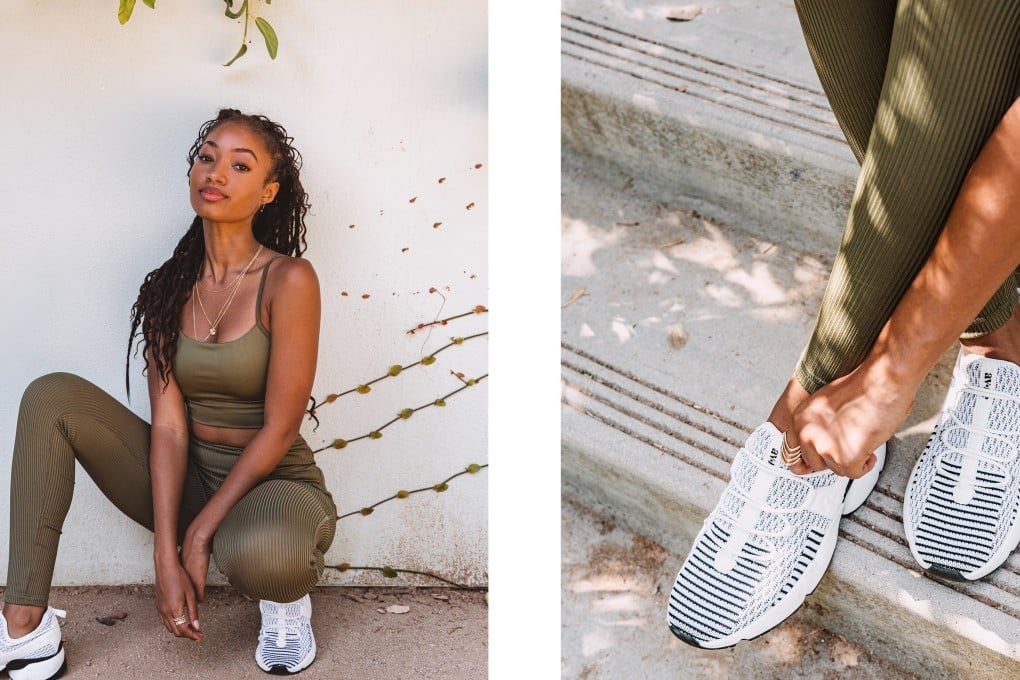Sustainable sneakers for modern women – sisters pivot from their fast fashion footwear family to launch Avre label
- Julie and Connie Kuo, co-founders of sustainable sneaker line Avre, grew up among family brand Qupid but wanted to move in a more meaningful direction
- Avre sneakers are made from fibres derived from plastic bottles and are designed for the modern, multitasking woman

Julie Kuo didn’t have to do too much heart-searching when it came to figuring out what she wanted to do with her post-university life.
Two days after she graduated with a degree in business management from the University of California San Diego in the United States, she was ensconced in her family’s Los Angeles-based footwear business, Qupid – a maker of on-trend shoes at an astoundingly accessible price point. Think US$39 for suede leatherette chestnut-coloured booties, or 1970s-inspired faux lizard iridescent sandals with a tower heel for US$44.
The brand, which ships worldwide and is available through retailers such as Walmart, Tillys and Overstock, hits all the pleasure points: it’s fun, fresh and you can fill an entire wardrobe with them and not break the bank.
But Kuo, whose family emigrated to California from Taipei, Taiwan, figured that one day she may want to move in a more meaningful direction.

Late last year, Kuo teamed up with her sister Connie to co-found Avre, a sneaker line that, ideologically, is at the opposite end of the spectrum from Qupid. The shoes are made from fibres derived from recycled plastic bottles and shipped in waste-minimising boxes. A percentage of sales also goes toward causes that support women and the environment.